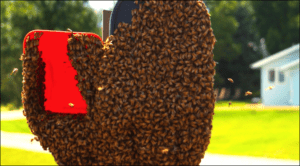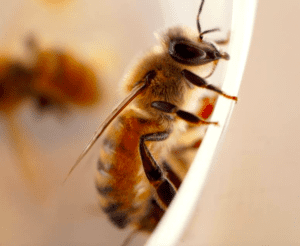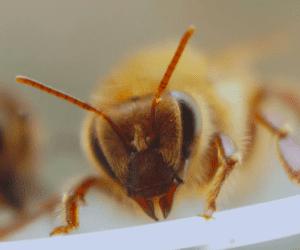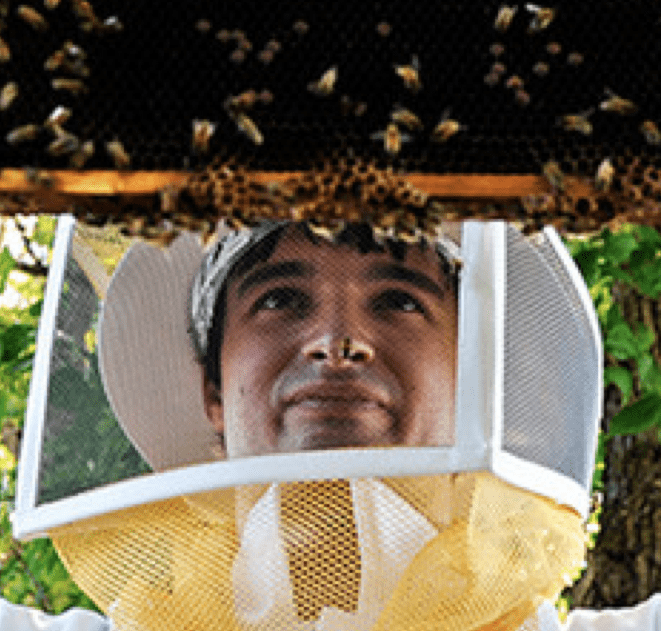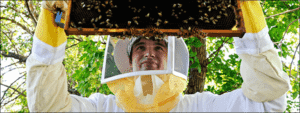
I am the newest member of the Midwest Tech-Transfer Team! I, along with my trusty comrade Phoebe Koenig, work primarily with Minnesota and North Dakota migratory beekeepers. We sample colonies for Nosema and Varroa, while performing whole colony inspections negative health symptoms, i.e. diseases, pathogens, pesticides. I am new to BIP, and in the process of meeting many ND/MN beekeepers, learning diagnostic techniques, and figuring out it is extremely easy to get lost finding bee yards (Damn you GPS!). I thoroughly enjoy this position because I get to work directly with commercial beekeepers. I am driven to provide beekeepers with data about colony health and the most effective management practices to reduce parasite loads
My interest in beekeeping started as a young child. My parents would help local commercial beekeepers extract honey during later summer, and I would often tag along. I would scrape poorly uncapped frames after they passes through the uncapper. Many times, the beekeepers would bring me to the bee yard, which sparked my interest in honey bees. When I could legally begin working, I got a position with a local commercial beekeeper. I learned quickly that commercial beekeeping is tough work! There were definitely long nights moving bees across ND, providing extra supers to colonies because it was going to be a clover year, pulling pounds of honey from colonies in 90 degree weather (and of course, using too much bee-go, which causes your eyes to burn, and clothes to smell for weeks!) and long days/nights extracting honey. But I savor this experience because it built character and a strong work-ethic. This job remains one of my most enjoyable experiences, and ultimately, taught me about not only the business of commercial beekeeping, but honey bees.
After I graduated from High school, I began studying biology at North Dakota State University in Fargo and eventually began a masters program. I wanted to learn as much about honey bees. With the help of my graduate advisor Dr. Julia Bowsher, whom has a research focus in developmental biology, I decided to determine how nutrition determines caste (queens versus workers) in honey bees. Queens and workers have the same genetic makeup, but due to differences in nutrition (AKA Royal jelly versus Worker Jelly) during larval development, individuals can become either a queen or worker. Moreover, I was also interested in how variation in nutrition impacts caste because nutrition can vary by the hive and/or apiary location.
To test this, I raise larvae in a laboratory environment (in vitro) on an artificial diet. I altered the diet during larvae development, followed the individuals to adult, and measured both final adult caste and reproductive parameters.
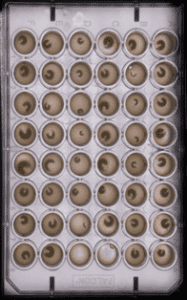
A wide range of individuals were raised from my artificial diets! Not only were queens and workers reared, but also intercaste bees (part worker-part queen), or what I call them, princess bees. I have never seen intercaste bees in a natural hive setting nor have I seen miniature workers half the size of normal workers. Thus, it seems bees have the ability to develop into a wide range of body sizes. These results indicate 2 conclusions: 1) nutrition during development is extremely important for both workers and queens, and 2) colonies impressively control queen versus worker development.
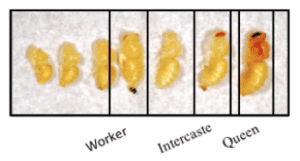
These results were pretty cool and I loved the research, but I decided I wanted to have an applied focus to what I do. Mainly because I started graduate school in order to help beekeepers, so I wanted to remain true to my long-term goal. Shortly after I graduated, I got this position at Bee Informed Partnership, and I am pleased. I get to be outside, meet many great beekeepers, serve as a liaison between researchers and beekeepers, and most importantly, I can work directly with beekeepers to improve colony health. I hope I will prove to be a useful asset to BIP, and I look forward to meeting whomever reads this!
